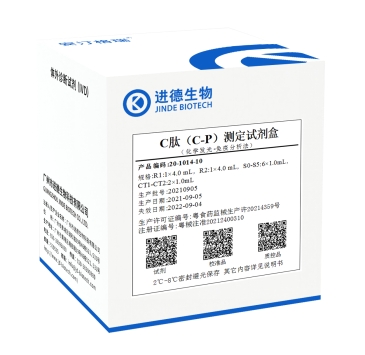C- P(C肽)
C-Peptide Chemiluminescent Immunoassay

☑️ Description
C-peptide is a byproduct the pancreas releases into the body when it makes insulin. The pancreas produces about the same amount of insulin and C-peptide.
Insulin is a hormone that regulates the amount of sugar (glucose) in the blood. Glucose is the human body’s main source of energy. Insulin allows cells in the muscles, fat and liver to absorb glucose to be used as energy.
☑️ How Does it Work?
In people with Type 1 diabetes, the pancreas isn’t able to make insulin. They need insulin injections so the body can use glucose. People with Type 2 diabetes make insulin, but their bodies either don’t produce enough insulin or resist the effects of insulin. Some people with Type 2 diabetes need medications to help their bodies use glucose. Over time, some people with type 2 diabetes are no longer able to make insulin.
Because C-peptide is a byproduct of insulin production, this test can reveal how much insulin the body is producing. When people take insulin, their bodies don’t make or release C-peptide. This test can tell the difference between insulin made by the body (endogenous) and insulin from medication (exogenous).
☑️Clinical Significance
1) Help classify the type of diabetes you have: Type 1 or Type 2 (in conjunction with other tests).
2) Confirm that diabetes treatments are working effectively.
3) Determine whether you’re producing enough insulin or whether you need insulin injections or a pump.
4) Investigate the causes of low blood sugar (hypoglycemia).
5) Distinguish between insulin the body produces and insulin that’s is injected into your body.
6) Rarely, check the status of pancreatic cancer.
Contact Us
Follow us
 Wechat
Wechat

